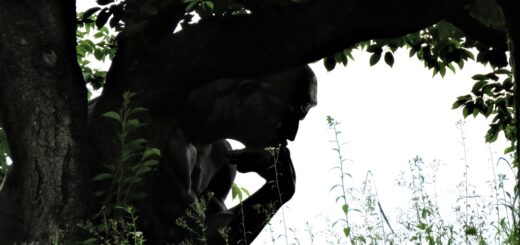On Race Language: The Good, The Bad, and The Indifferent
As an addendum to my recent article about the linguistic tyranny of political correctness (read it here), please indulge me in the following rant.
In response to the above-mentioned article, a very thoughtful reader e-mailed some of her own reflections and experiences, including the following:
In regards to being purely descriptive, and not being potentially racist or some other hateful term, I find myself always qualifying myself, just so as to not appear “insensitive”. It’s incredibly difficult keeping up with what a group prefers to be labeled! I just say “black,” when speaking to anyone (with an appropriate “qualifier”). I now understand most African-Americans prefer this, considering how many come from the Caribbean countries (“West Indian,” specifically). Back in the day, people from an Asian country, such as Korea, were collectively known as “Orientals”. “Chinks” was a derogatory term for Chinese, not unlike the “n word”….
Weren’t we ALL raised to “know better”?
I replied to her, with particular interest in the idea that in the past, people simply “knew better” — that is, were raised to know how to behave and speak without government mandates — as follows (with cosmetic modifications):
I’m personally tired of the sensitivity industry. As you say, there is a sense of “knowing better” that used to be the standard — not legal but human standard — of which “labels” were acceptable or not. But there was much less sense of a definable, absolute “right vs. wrong” way about it. Some words were explicitly intended as insults (as in your example, “Chink”), and were never thought to be anything else by anyone. They were invented as “slurs.” So you didn’t say them if you meant to be polite. On the other hand, you might say “Chink” to a Chinese friend you knew was reasonably good-natured about such things, precisely as an easygoing kind of familiarity or even self-deprecation — as in, “Sure, you’re better at math, but that’s only because you’re a Chink!” In other words, even the slur could be turned on its head in an appropriate and mutually-understood context. And there was certainly no stricture against using such words in contexts where you were trying to represent the vernacular of your (or another) time for narrative or other purposes, such as in a novel or movie. In other words, the mere sound itself was not the problem, but rather only the bad intentions behind it.
Now there is a rule book with literal, legal implications, and it is ever-changing, and you don’t get to participate in its creation. The new rules of the month are simply dumped on you from on high, and you are guilty of a thought crime, even retroactively, for ever having considered using a word that has just been added to the list of unmentionables. And again, it is not merely that you are not supposed to use these words with bad intentions, but you are not allowed to say them at all, even for purposes of demonstration. Consider your own example: you used “Chink,” but then you felt coerced by our universal propagandizing to say “the n word,” because if you used the full spelling, you’d have felt as though you had done something immoral, right? But what is immoral about writing a word in the context of describing that very word as inappropriate or offensive? It’s pure indoctrination, and of very recent vintage, that makes us feel squeamish about it, and forces us into this childish “n word” nonsense.
I always had this “toughen up” attitude about mere words, but I suppose I’ve become more set in my ways since I moved to Korea, where there is a lot of “benign racism,” as well as a fair amount of malign racism, toward foreigners of all kinds. (Recalling that Koreans, as a national group, are racially homogeneous, unlike Americans, Canadians, etc.) I’ve seen “the race problem” from the “victim’s” side now, and can honestly say that the only reasonable thing to do is be what you are, as well as you can be it, and slowly break down attitudes and resistance by giving the narrow-minded types reason to doubt their stereotypes. As for the unpleasant words or condescension of those bad eggs around one, who cares? You live your life.
The basketball star Charles Barkley had a great comment about the Robert E. Lee statue nonsense, back when that was the tinderbox issue of the moment.
My favorite quote:
“I’m 54 years old. I’ve never thought about those statues a day in my life. I think if you ask most black people to be honest, they ain’t thought a day in their life about those stupid statues.”
Amen.


